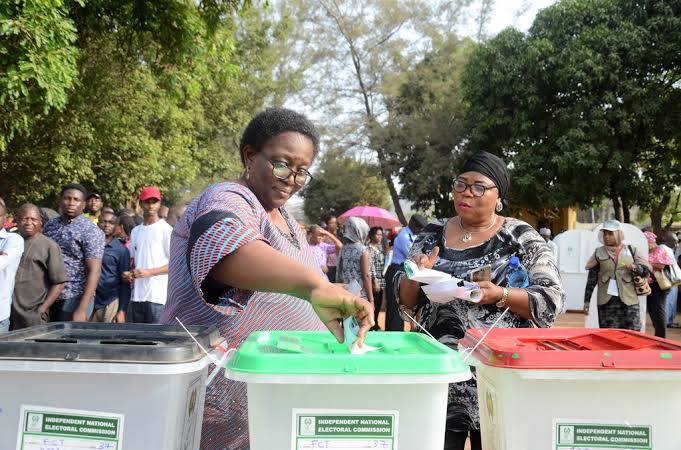Non-governmental organisation ,NGO, Global Rights, has has expressed its opposition to the bill currently before the House of Representatives seeking to make voting compulsory for all eligible Nigerians.
Executive Director of the NGO, Abiodun Baiyewu, in a statement on Wednesday in Abuja, said the bill with penalties, including ₦100,000 fine, six months imprisonment or both, violated the citizens’ civic rights.
“We believe in civic participation and the value of voting in a democratic society, but we firmly reject the idea that Nigerians should be forced to vote under threat of punishment.
“This proposal is not just misguided, it is undemocratic. Voting is indeed a civic duty and a vital responsibility in any democracy.
“However, civic duty should be encouraged through public trust, education and access, not enforced through criminal penalties.
“In a truly democratic society, participation must be voluntary, meaningful and inspired by confidence in the system, not compelled by fear of fines or imprisonment”, he said.
Baiyewu said that low voter turnout, including the less than 30% recorded in the 2023 general elections, was not primarily due to indifference to the outcome, but rather a mistrust in the electoral process.
According to him, the mistrust is further compounded by violence, vote buying, hate speech and disinformation that continue to plague the country’s elections.
He said that the increasing monetisation of politics, deployment of thugs, routine use of incendiary rhetorics and fake news during campaigns had created an environment in which many Nigerians no longer believed elections were fair, safe or meaningful.
The executive director made reference to a research conducted by the organisation, tagged ‘Disarming Weapons of Lies and Hate: Countering the Weaponisation of Identity-Based Hate and Fake News in Nigeria’s Elections’.
“The report showed that 90.7% of respondents agreed that hate speech and fake news have damaged social cohesion, while 67.5% reported that such rhetoric reduced their willingness to participate in the electoral process.
“Many Nigerians also expressed little faith in the judiciary, which often serves as the final arbiter of election disputes, but is widely perceived as lacking independence.
“Rather than criminalising non-voters, lawmakers should focus on restoring public confidence in the democratic process”, he said.
Baiyewu argued that the legislators should use their oversight powers to ensure that INEC fully complied with the Electoral Act and that elections were transparent and credible.
He said that efforts must also be directed toward making democracy more inclusive, particularly for women, persons with disabilities and young people who were being faced with systemic barriers to political participation.
“More importantly, people and groups that commit electoral violence must be accountable, as this is one of the greatest deterrents to voter engagement in Nigeria.
“Global Rights remains committed to promoting civic engagement and belief in the power of the vote. However, democracy must be built on trust, fairness and freedom, not compulsion.
“While the supporters of this legislation have recognised a symptom in the myriad of issues plaguing our democracy, they are hastily prescribing the wrong medication to deal with the symptom but not the disease.
“If the goal is truly to strengthen participation, the solution lies in fixing the system, not punishing citizens for losing faith in it”, he said.





